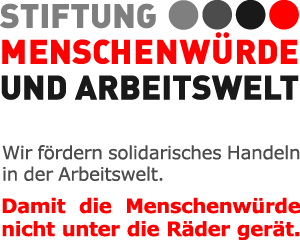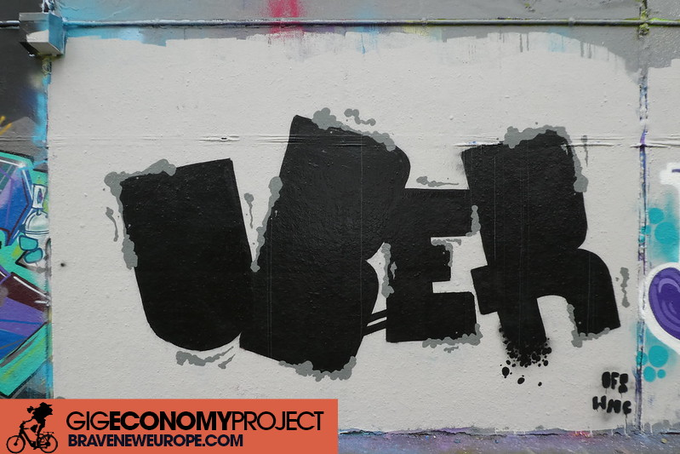Uber seeks to claw back costs from accepting worker status for UK drivers by increasing its commission paid by its longest-serving drivers
The Gig Economy Project, led by Ben Wray, was initiated by BRAVE NEW EUROPE enabling us to provide analysis, updates, ideas, and reports from all across Europe on the Gig Economy.
This series of articles concerning the Gig Economy in the EU was made possible thanks to the generous support of the Foundation Menschenwürde und Arbeitswelt


Uber has announced that its longest serving UK drivers will be forced to take an effective pay cut of 5 per cent from July, in a move condemned by the United Private Hire Drivers (UPHD), a branch of the IWGB Union.
The global ride-hail giant told the earliest drivers to sign-up for Uber in the UK on Monday [28 June] that the ‘Service Fee’ (the commission the company takes on each ride) will be increased from 20% to 25% from 13 July, bringing it into line with newer drivers on the app.
The move comes just one month after the company signed a formal recognition agreement with the GMB union, the first time the company had formally recognised a trade union anywhere in the world. However, the agreement was criticised by UPHD and other grassroots unions for excluding collective bargaining on pay, including on the implementation of the minimum wage.
In justifying the pay cut, Uber said that it wanted to “treat all drivers equally”, and also pointed to recent changes in its operations following the UK Supreme Court judgement in February which found that Uber drivers in the UK should be considered workers, and thus are entitled to certain benefits from the company including holiday pay and a pension.
In March, the company responded to the judgement by accepting most, though not all, of its ruling, introducing an additional payment of 12.07% of earnings to reflect holiday pay, a pension scheme and a guarantee of the minimum wage from pick-up to drop-off.
Nader Awaad, UPHD Chair and Uber driver, said of the pay cut: “We all knew that Uber would raid the drivers pockets to pay for them breaking the law and depriving drivers of their rights, and here they are doing exactly that.
“This is a company that is expanding and flooding cities around the world with drivers every day. They can more than afford to pay the hardworking drivers what they deserve, but instead it is the drivers who are being forced to pay out of the pittance they are making. “
Hassan Haji, a long serving Uber driver and UPHD member, said: “I have worked for Uber for six years and working throughout the pandemic has been such a tough time for drivers. Not only have we seen pay drastically fall, we have had to risk our lives chasing the pennies on offer.
“I could not stay home and keep safe, and so I continued to work and carried passengers safely around London. The thanks I have got from Uber? A 5% pay cut that will further destroy my finances that were already in tatters. I am trying hard to recover from the pandemic and Uber seem to just want to make things worse.”
Yaseen Aslam, President of the App Drivers & Couriers (ADCU) Union, another grassroots union for Uber drivers, said that the pay cut showed why ADCU “would refuse to do any deal with Uber”.
He added: “In 2015 Uber announced an increase in commission from 20% to 25%. We protested at the time and Uber agreed not to change it for the existing drivers. Today, Uber has gone back on this agreement and increased it to 25%.”
The GMB union is yet to respond to the pay cut announcement publicly.
Uber has never turned a profit and reported losses of $6.77 billion in 2020 and $8.51 billion in 2019. In the US, where drivers still operate on a ‘self-employed’ basis, the company has been raising fares as the impact of the pandemic has receded, while at the same time making changes which have seen driver pay fall, including a reduction in minimum pay for long-distance trips. Uber CEO Dara Khosrowshahi said last year that the company will be profitable by the end of 2021.
Last week, The Gig Economy Project reported on a strike by ADCU Bolt drivers in the UK, demanding that the company respects the Uber Supreme Court ruling and implements worker status, saying that the company operates on an “identical” basis in relation to its drivers as Uber.
Meanwhile, the Independent Workers Union of Great Britain (IWGB), which the UPHD is part of, has announced a “school of organising” across the month of July, to support its members in developing their union organising skills at work.
Also last week, the IWGB lost a court case against Deliveroo, the food delivery platform backed by Amazon, over the self-employed status of its riders. The UK Court of Appeal ruled that Deliveroo riders could be considered self-employed on the basis that they could sub-contract the delivery to another person, despite the fact that a lower court had previously found that “in practice substitution is rare as there is no need for a Rider to engage a substitute.” The IWGB could potentially now take their appeal to the Supreme Court.



Be the first to comment